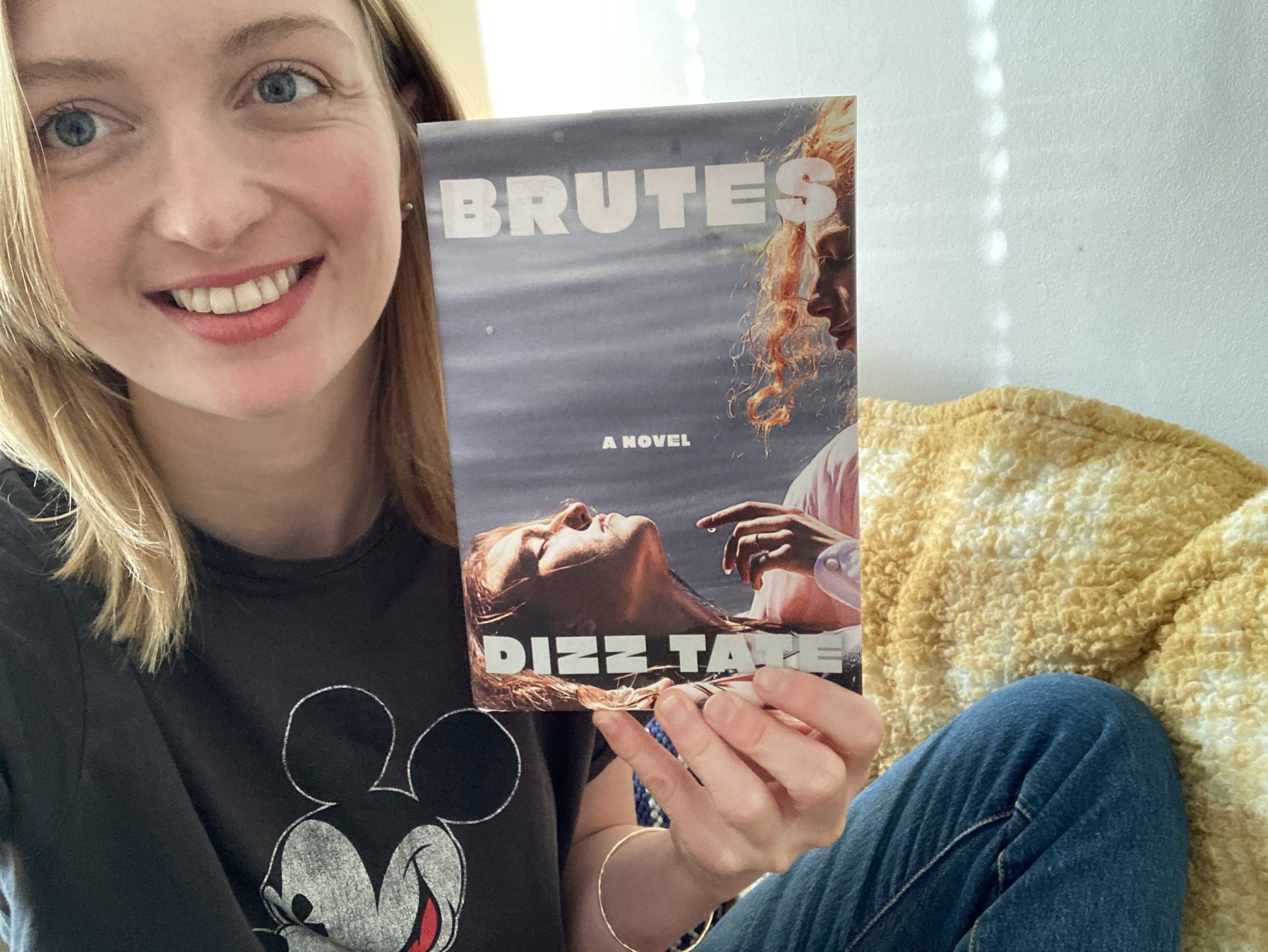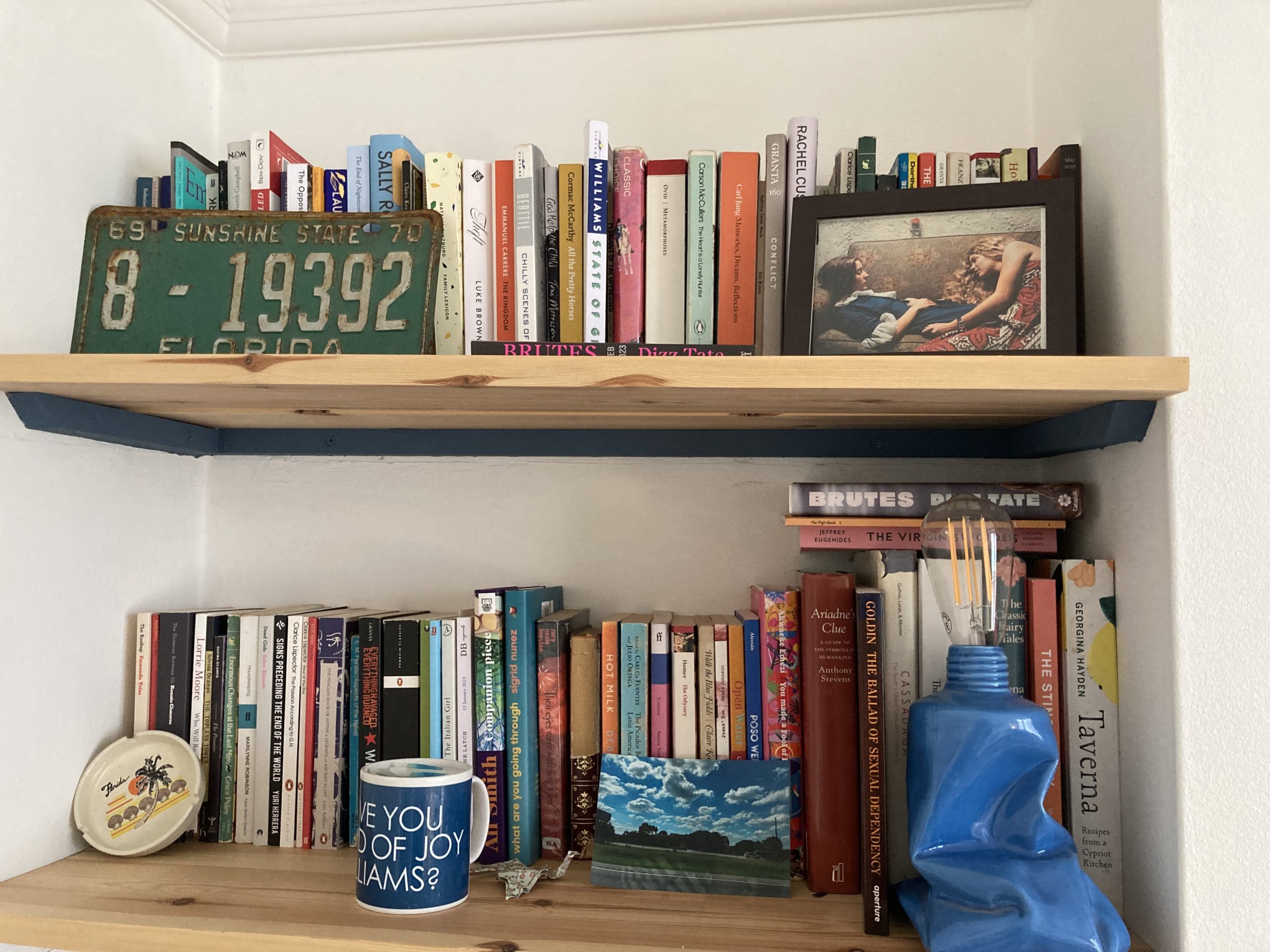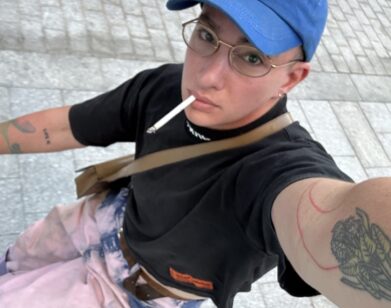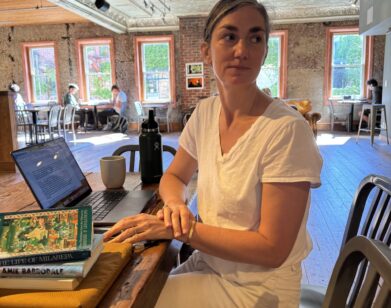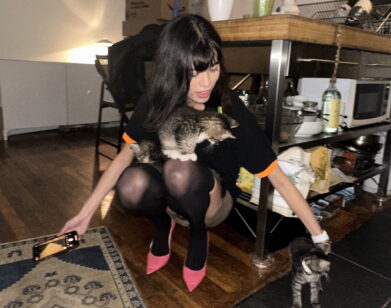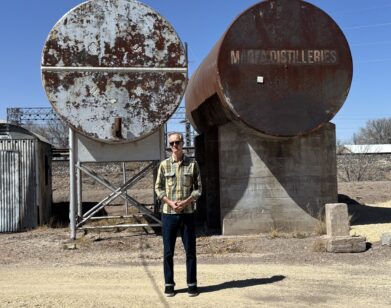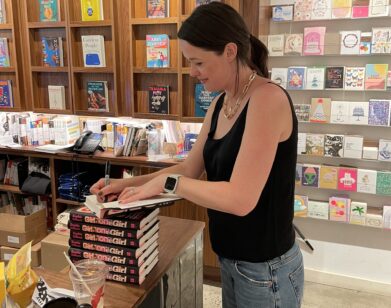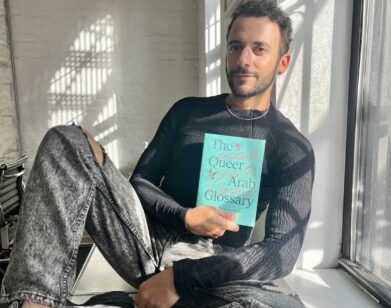OPEN BOOK
Novelist Dizz Tate Writes One Thousand Words Before Getting Out of Bed
This is OPEN BOOK, a new monthly column in which we ask debut authors about their reading and writing habits. This month, we spoke with poet-turned-fiction-writer Dizz Tate, whose new book Brutes is a poignant coming-of-age novel about a group of thirteen-year-olds infatuated with the disappearance of a local girl in their Florida town. From her refusal to be let down by a book to her 1000-words-before-rising rule, Tate tells us of her personal philosophies when it comes to creating, and enjoying, literature.
———
Where do you like to write?
I feel most comfortable writing in bed. I have owned desks but they are normally draped in laundry and I don’t like sitting up straight. I hunch when I concentrate. When I was waitressing at night, I had a rule for a while where I would not get out of bed in the morning until I’d written 1,000 words. This worked well and sometimes I stayed in bed until midday. I like to feel grimy with dreams still, to keep a residue of illogic close to the page. I also like to drink coffee until I feel somewhat frantic. None of this is healthy or particularly clean, but it works for me. Writing, to me, should feel a little dirty, embarrassing, and secretive. Once I’m done making up stuff, I shower and eat and put on make-up. Then I can reply to emails or go to work or speak to people.
When do you like to write?
In the mornings and afternoons. When it gets dark, I’m done. Then I want to talk to people I love!
What’s the first thing you did after you turned in a draft of your novel?
I wrote so many drafts! I think the common pattern was feeling a smug thrill when I sent it to my agent that lasted about an hour, then a declining celebratory evening where I drank too much wine, then the doubt would rise and take over with the dawn. Then there’s the long wait to hear back, knowing you’re most likely going to have to rewrite the entire thing, which I did about seven times, I think. I do remember really clearly when I got the first offer when I knew it was going to be published. I was working at a high school in Birmingham here in the UK; I’d just finished and was walking home when my agent called me with the news. I was in the city centre where there are many committed, friendly people trying to convert passersby to almost every religion via megaphone. I went and sat in an empty chain bar, stared at a beer for about two hours and listened.
Tell us about a formative early reading experience.
I was really into a series of books called The Sleepover Club when I was a kid. I remember there being hundreds of them but this could be untrue. I read about two every week. Each book was about the same group of girls who took turns to go to each other’s houses and each sleepover had a different activity, like baking or ice skating (I’m realizing as I write this that my novel is essentially a darker evolution on this theme). The first thing I ever wrote was called The Sleepover Club Plays Basketball, combining my two favorite things as a nine-year-old. I think it took a turn that disturbed my mum. Someone got hit in the face by the ball on purpose and I spent a long time describing the bruise.
The last book you loved, and why?
I adored Cousins by Aurora Venturini (translated by Kit Maude) that comes out later this spring. Taut, weird, brilliant, punishingly honest, but loving, too. I also read a book called Theft by Luke Brown recently that killed me – I read it in one sitting and the dialogue just flew. I’m cheating with numbers here but I also really loved Feebleminded by Ariana Harwicz (translated by Annie McDermott and Carolina Orloff) – the last line blew my mind and made me love the whole book ten times more, which is very inspiring for what a last line can do.
The last book that disappointed you, and why?
Books don’t disappoint me. Some bore me, some I’ll never finish. But I guess coming through the process of making one, how dull and weird and isolating it is to do most of the time, I just like that they exist. Disappointed sounds like something a guidance counsellor would say when you get into trouble at school. I always want to be on the side of the disappointing troublemaker, not the one looking down their nose.
Hardcover or paperback? Why?
Paperback. I’m a dog-earer, too. I read in the bath and when I’m eating and I spill most things through distraction. So a worn, bendy paperback is good for me. Well-thumbed, if you will, what a cute phrase!
A book you think should be in the canon, but isn’t:
The word canon immediately makes me feel nauseous, like I’ve walked into an exam I haven’t prepared for. I’ve never been very into the academic side of reading. I still remember skipping high school as a teenager to go to IHOP and eat pancakes instead; I don’t know if I’ve ever felt a happier feeling. Once I’d felt it, I was never very good at going to classes after, not at university either, when I wish I’d tried harder because I’ll be paying the fees back my whole life! But I used to get to the door of my university and then get spooked or feel lazy, and I’d keep walking to the nearest bookstore and just sit and read there all day. I picked up a bunch of stuff at random. I skipped a lot of old books that I’m trying to catch up on now, but I don’t know how to defend things on a grand scale. When I recommend a book to someone, I don’t get much further than saying: “I liked it a lot! Here!” I guess I’ll say Joy Williams, because her work means so much to me, but I feel like she’s in the canon already. My one essay I wrote at university was basically me arguing that no one liked Joy Williams except me, that I was the only one who truly loved her, and my lecturer had to gently tell me that many people liked her a whole lot. I didn’t get a good mark, as I recall, though my passion was remarked upon kindly.
A book you think shouldn’t be in the canon, but is:
Again, I’m a bad judge. I live in my own little mind with all my likes and dislikes which I can’t ever explain particularly well. I read pretty much what anyone recommends, though. I love when someone gets a bit glazed-eyed about a book and says: “It’s so good!” Any book that someone has to italicize their enthusiasm for, like a good restaurant, should be in the canon.
What’s your favorite bookstore(s)?
I really love the secondhand Oxfam bookshops in the UK. You can get a stack of ten books for ten pounds and they have lovely old covers, sometimes sweet inscriptions. I found the poet Freda Downie in an Oxfam shop; her collection A Stranger Here is one of my favorites.
What do you look for in a reading experience?
There’s this line from the artist Gertude Abercrombie about how she made her paintings, and she said something like: I like simple things that are a little strange. I love books like that, that are put together with recognizable care, that are familiar but also gesture beyond the familiar, toward the inexplicable. Books that feel honest in their mystery.
How do you arrange your bookshelf?
Randomly, but with affection.
Have you ever lied about having read a book? If so, which one?
No, I get too excited when I lie and overdo it. I learned this about myself pretty early in life. When I was in seventh grade, I read Louise Rennison’s Georgia Nicolson series and thought they were so funny that I stole some of the stories for my own, no doubt performing them at lunch in the cafeteria one day. Then I totally forgot and made the mistake of giving those books to my friends. So embarrassing! I still remember it. They were like, you haven’t done any snogging, have you? You stole all your stories! It was true. I was a liar and a thief, but the worst kind: clumsy, enthusiastic, forgetful, always caught. I remember reading A Tree Grows in Brooklyn around that age, too, and there’s a part in it where a teacher tells Francie, the protagonist, something like, if you say something untrue out loud, it’s a lie, if you write it down, it’s a story. This still seems like solid advice to me.

